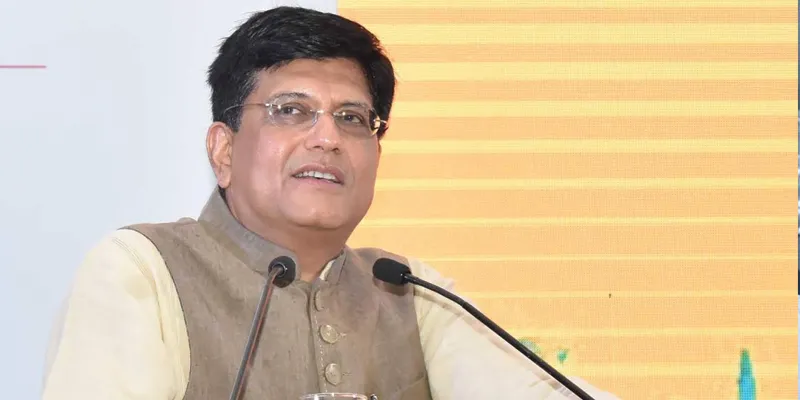Amazon not doing favour to India by investing a billion dollars, says Piyush Goyal
Goyal, who has not yet given Jeff Bezos an audience, said ecommerce companies have to follow Indian rules in letter and spirit and not find loopholes to make a back-door entry into multi-brand retail segment.
A day after the world's richest person Jeff Bezos announced a fresh investment in India worth $1 billion, Union Commerce and Industry Minister Piyush Goyal on Thursday said, Bezos' firm, Amazon, was not doing a favour to the country by the investments, and questioned how the online retailing major could incur such "big" losses but for its predatory pricing.
Goyal, who has not yet given Bezos an audience, said ecommerce companies have to follow Indian rules in letter and spirit and not find loopholes to make a back-door entry into multi-brand retail segment.

India does not allow foreign investment beyond 49 percent in multi-brand retailing and has not yet approved any application of overseas retailers.
"They (Amazon) may have put in a billion dollars, but if they make a loss of a billion dollars every year, then jolly well will have to finance that billion dollars. So, it is not as if they are doing a favour to India when they invest a billion dollars," he said at the Raisina Dialogue.
The $1 billion investment by Amazon.com to help bring small and medium businesses online, is on the top of $5.5 billion funding it had previously announced.
The minister wondered why an ecommerce market place model, where a firm provides an IT platform for buyers and sellers, is incurring huge losses, adding that it needs to be looked upon.
"They are investing money over the last few years also in warehousing and certain other activities, which is welcome and good. But they are bringing in money largely to finance losses, and those losses are in an ecommerce market place model," Goyal said.
He added that in a fair market place model with a turnover of $10 billion dollars if a company is incurring a loss of billion dollars, it "certainly raises questions, where the loss came from".
Goyal asked how can a marketplace make such a big loss unless they are indulging in "predatory pricing or some unfair trade practices".
"These are the real questions which need answers, and I am sure the authorities who are looking at it seek those answers, and I am sure the ecommerce companies will have their say on that," he said.
Fairtrade regulator Competition Commission of India (CCI), has recently ordered a probe against ecommerce majors and Amazon, for alleged malpractices including deep discounting and tie-ups with preferred sellers on their platforms.
The Minister added that India allows foreign investments in ecommerce market place model, and in this model, buyers and sellers are free to trade, but the market place player cannot own the inventory, or they can not determine prices.
There are several established market rules for an ecommerce market place business in India, and "I think as long as everybody follows these rules, we very much welcome ecommerce into India," he added.
Further, he said that India has strict rules for FDI in multi-brand retail trading, and anybody who tries to use the ecommerce market place model to get into the multi-brand retail space surreptitiously, will have to be questioned and investigated.
"Whether they are doing that or not is a matter of the investigators to decide...whatever (would be their) findings, that should be respected by everybody," Goyal said.
He reiterated that investors have to follow the laws in letter and spirit and not try to find loopholes within the defined letter of the law.
(Edited by Suman Singh)









